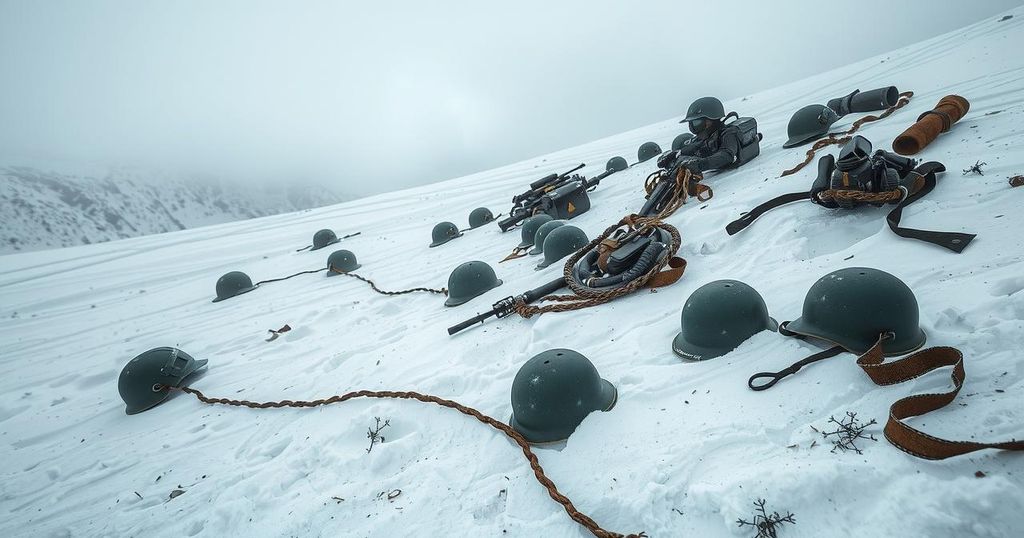World news
ASIA, DEFENCE, ENERGY INFRASTRUCTURE, EUROPE, EUROPE/ASIA, JAPAN, JONG GYONG HONG, KIM JONG - UN, KURSK, MILITARY, MILITARY SUPPORT, MOTHER PARTY, NIKKEI, RUSSIA, SPECIAL OPERATIONS FORCES OF, SPECIAL OPERATIONS FORCES OF UKRAINE, TOKYO, UKRAINE, WAR, WORKERS ' PARTY OF KOREA
Oliver Grayson
0 Comments
Exploring the Final Thoughts of North Korean Soldiers in Ukraine
Russia has sent over 10,000 North Korean troops to Ukraine, with 4,000 casualties. Discoveries of personal notes reflect mental distress, loyalty, and hope among fallen soldiers. Nikkei’s investigation reveals these soldiers’ emotional state through their belongings, including a note purportedly from Kim Jong Un encouraging their safe return.
In response to troop shortages, Russia has deployed over 10,000 North Korean soldiers to the Ukraine front, with approximately 4,000 reported killed or wounded. The psychological state of these soldiers in their final moments is explored through personal notes and items retrieved by Ukrainian forces. Nikkei, collaborating with Ukrainian authorities and a former North Korean soldier, conducted an investigation to reveal the emotional burdens and convictions of the deceased troops.
The investigation uncovered significant reflections from fallen soldiers, showcasing both extreme mental distress and a profound loyalty to the Workers’ Party of Korea. One poignant note was found written by Jong Gyong Hong, who expressed feelings of guilt for having betrayed his party’s love and grace, adding a hopeful note about returning to the party.
Additionally, among the items collected was a note purportedly signed by Kim Jong Un, which encouraged the soldiers to return home safely. Although the authenticity of this message remains uncertain, it exemplifies the unwavering support expected from their supreme leader, reinforcing the soldiers’ commitment even in adversity.
The deployment of North Korean soldiers in the Ukraine conflict reveals their internal struggles, loyalty, and hopes amidst immense hardship. Personal artifacts and notes illustrate the psychological burden faced by these individuals, as well as the strong allegiance they maintain towards their political leadership. This situation underscores the complexities of military engagements and the personal turmoil experienced by those serving in such challenging circumstances.
Original Source: asia.nikkei.com




Post Comment